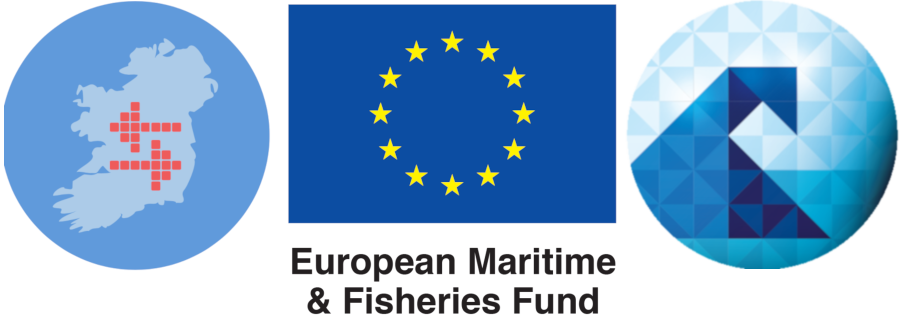CV17041 A multidisciplinary approach to studying deep diving whales and their habitat
A multidisciplinary approach to studying deep diving whales and their habitat. Operations will be 24 hours therefore acoustic tows will be taking place day and night. Visual operations will only take place during daylight hours. Due to the daily vertical migration cycle of these deep species where fish and cephalopods migrate into shallower waters during night time and back to depths during daylight combined with the Voyagers limitation of trawling to 400m we will be carrying out all our fishing activities on deck between dusk and dawn. We will use a mid-water trawl to a depth of 400m although we can also consider using a nueston net to slightly deeper depths. In addition, CTDs and plankton tows will be carried out at regular intervals along transects. If these stations fall during night time hours then these will be carried out then also. The three main aims of this survey are: i) To investigate the fine scale distribution and habitat use of deep diving whales, particularly beaked and sperm whales. ii) To improve species identification of beaked whales and to update current species description of beaked whales within Irish waters. iii) To investigate the food chain of deep diving whales in Ireland and their link to oceanographic and topographic features of interest. Scientific Objectives The proposed survey has 8 objectives 1) To employ sightings-based survey design to model the distribution of deep diving whales in the study area 2) to calculate abundance and distribution of beaked and sperm whales in this region using towed acoustic hydrophones, and to characterise their acoustic behaviour 3) To investigate the abundance and biomass of mesopelagic fish species and squid, the main prey sources for beaked and sperm whales 4) To take high quality images of beaked whales that can be used for species identification and to update our knowledge of species occurrence in Irish waters for future surveys 5) to characterise the oceanography data of the study area and better understand water movements 6) to understand the role of zooplankton in this deep-water ecosystem.
Simple
- Date (Publication)
- 2018-01-18
- Date (Revision)
- 2018-11-29
- Date (Creation)
- 2018-01-18
- Citation identifier
- ie.marine.data:dataset.1999
- Point of contact
-
Organisation name Individual name Electronic mail address Role Ryan Institute, University of Galway.
Originator
- Maintenance and update frequency
- As needed
- Use limitation
-
While every effort is made in preparing the dataset no responsibility is accepted by or on behalf of the Marine Institute for any errors, omissions or misleading information. The Marine Institute accepts no responsibility for loss or damage occasioned or claimed to have been occasioned, in part or in full, as a consequence of any person acting, or refraining from acting as a result of a matter contained in this datasets or as a consequence of using this dataset for any purpose whatsoever.
- Use limitation
-
A Creative Commons (CC) license is one of several public copyright licenses that enable the free distribution of an otherwise copyrighted work. A CC license is used when an author wants to give people the right to share, use, and build upon a work that they have created. Under Creative Commons CC BY 4.0 the following is granted: Rights Share — copy and redistribute the material in any medium or format; Adapt — remix, transform, and build upon the material for any purpose, even commercially. The licensor cannot revoke these freedoms as long as you follow the license terms. Requirements Attribution — You must give appropriate credit, provide a link to the license, and indicate if changes were made. You may do so in any reasonable manner, but not in any way that suggests the licensor endorses you or your use. No additional restrictions — You may not apply legal terms or technological measures that legally restrict others from doing anything the license permits.
- Access constraints
- CC%20BY%204.0
- Aggregate Datasetindentifier
- ie.marine.data:instrument.45
- Association Type
- Cross reference
- Initiative Type
- Sensor
- Aggregate Datasetindentifier
- ie.marine.data:instrument.195
- Association Type
- Cross reference
- Initiative Type
- Sensor
- Aggregate Datasetindentifier
- ie.marine.data:instrument.198
- Association Type
- Cross reference
- Initiative Type
- Sensor
- Aggregate Datasetindentifier
- ie.marine.data:instrument.199
- Association Type
- Cross reference
- Initiative Type
- Sensor
- Aggregate Datasetindentifier
- ie.marine.data:platform.34
- Association Type
- Cross reference
- Initiative Type
- Platform
- Aggregate Datasetindentifier
- ie.marine.data:dataset.845
- Association Type
- Cross reference
- Initiative Type
- Collection
- Aggregate Datasetindentifier
- ie.marine.data:dataset.848
- Association Type
- Cross reference
- Initiative Type
- Collection
- Spatial representation type
- Grid
- Language
- English
- Begin date
- 2017-10-29
- End date
- 2017-11-06
))
- Reference system identifier
- INSPIRE RS registry / http://www.opengis.net/def/crs/EPSG/0/3857
- Distribution format
-
Name Version CSV CTD Data
CSV Underway Data
- OnLine resource
-
Protocol Linkage Name WWW:LINK-1.0-http--link
http://www.marine.ie
- OnLine resource
-
Protocol Linkage Name WWW:LINK-1.0-http--link
http://www.seadatanet.org/
- Hierarchy level
- Dataset
Conformance result
- Title
-
Commission Regulation (EU) No 1089/2010 of 23 November 2010 implementing Directive 2007/2/EC of the European Parliament and of the Council as regards interoperability of spatial data sets and services
- Date (Publication)
- 2010-12-08
- Explanation
-
See the referenced specification
- Pass
- Yes
- Statement
-
Data supplied by Marine Institute.
Metadata
- File identifier
- ie.marine.data:dataset.1999 XML
- Metadata language
- English
- Hierarchy level
- Collection session
- Date stamp
- 2025-02-21T18:23:08.066912Z
- Metadata standard name
-
ISDI Metadata Profile
- Metadata standard version
-
1.2
- Metadata author
-
Organisation name Individual name Electronic mail address Role Marine Institute
Point of contact
 Irish Spatial Data Exchange
Irish Spatial Data Exchange

)))
